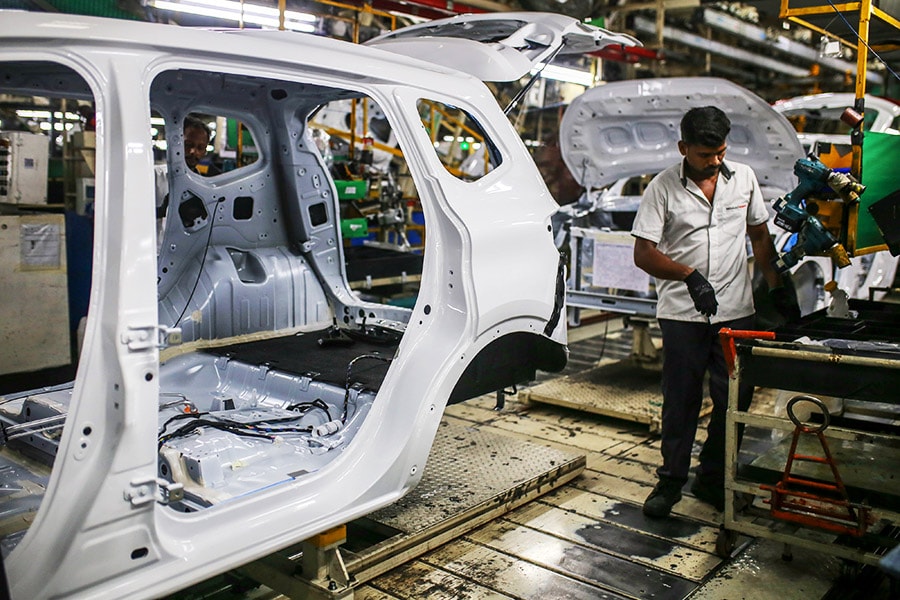Budget 2024: Not a lot for auto and aviation, but highways will grow, especially in Bihar
Auto sector had expected third phase of the FAME scheme, while aviation had sought fuel price cuts and priority sector lending tag for airports
 The auto sector will now have to find comfort in the exemption from customs duties for lithium, copper, and cobalt, which can help lithium-ion battery manufacturing in India.
Image: Getty Images
The auto sector will now have to find comfort in the exemption from customs duties for lithium, copper, and cobalt, which can help lithium-ion battery manufacturing in India.
Image: Getty Images
There really wasn’t much in the Union Budget for the country’s automobile sector. In fact, the sector did not find much mention in the finance minister’s speech. Despite that, the government has increased the allocation for production-linked incentive (PLI) schemes for automobile and auto components to Rs 3,500 crore in FY25, from a little over Rs 600 crore in FY24.
The industry had been hoping for the third phase of the FAME scheme, aimed at incentivising electric vehicle (EV) adoption in the country, in addition to a reduction in taxes for hybrid vehicles. Instead, the sector will now have to find comfort in the exemption from customs duties for lithium, copper, and cobalt, which can help lithium-ion battery manufacturing in India. Lithium and cobalt are the two main components of lithium-ion batteries.
“The Indian automobile industry welcomes the continued emphasis on economic growth with several announcements, especially the strong fiscal support for infrastructure in the next 5 years,” says Vinod Aggarwal, president of the automobile industry body, SIAM, and MD & CEO, of Volvo Eicher Commercial Vehicles. “The announcements, such as liberal allocation for rural development and infrastructure of Rs 2.66 lakh crore, is a welcome step that will boost the rural economy.”
The government has given a fillip to the shipping and aviation sector, announcing incentives to boost maintenance, repair, and overhaul activities. “To promote domestic aviation and boat and ship MRO, I propose to extend the period for export of goods imported for repairs from six months to one year,” Nirmala Sitharaman said in her Budget speech. “In the same vein, I propose to extend the time limit for re-import of goods for repairs under warranty from three to five years.”


















